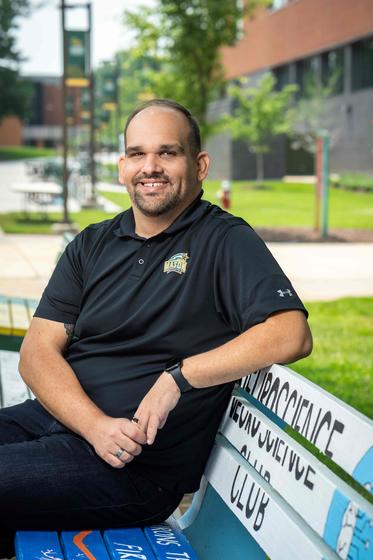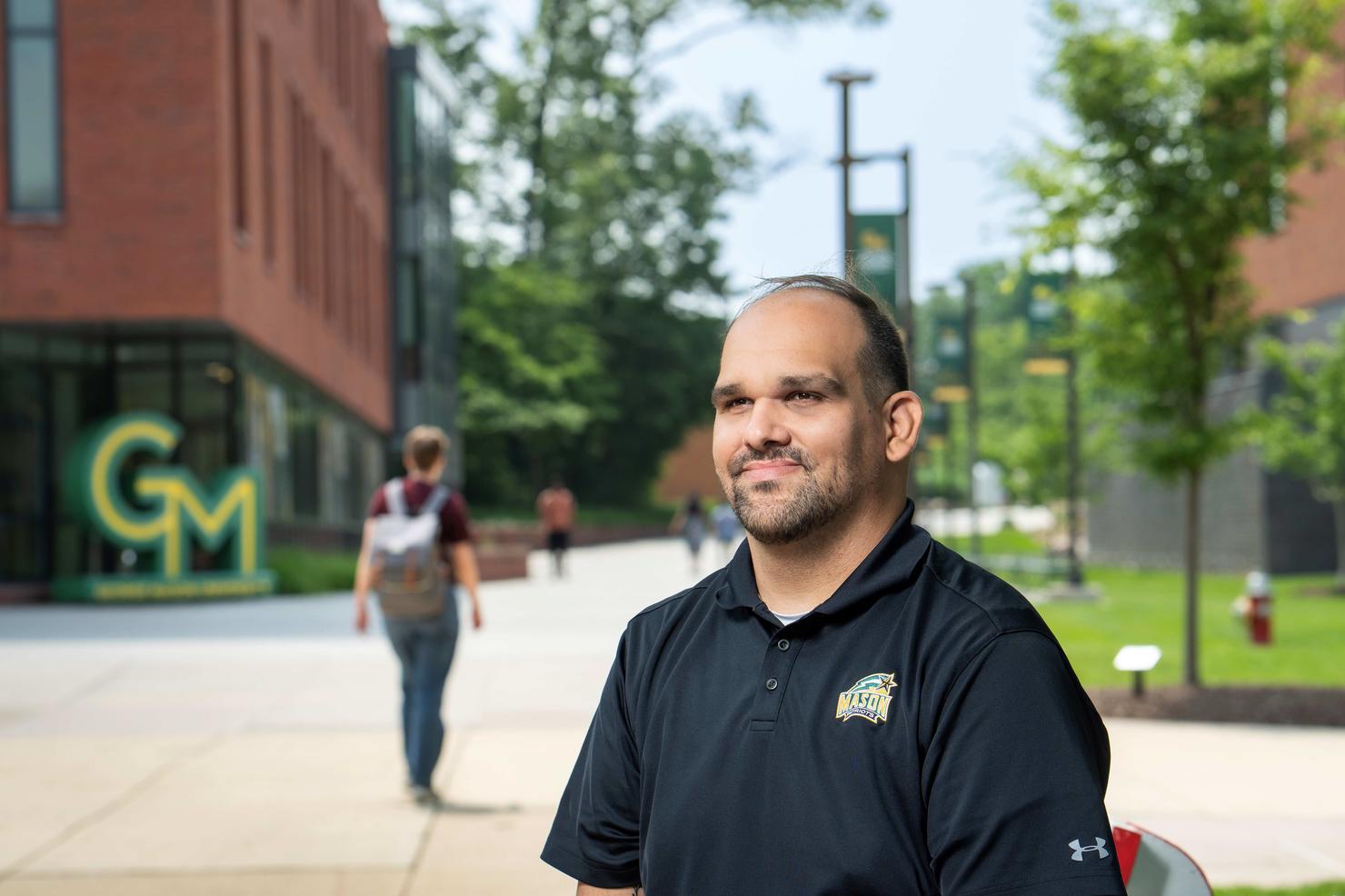TJ Pegg
Job: Associate Director for Student Success Coaching

Starting college can be an exciting and sometimes overwhelming experience. Life at a university presents new opportunities, challenges, and ways for students to find personal pathways to success. At George Mason University, the Student Success Coaching team helps students navigate the transition to college and make the most of their student experience.
TJ Pegg has been part of the Student Success Coaching team for five years. In May 2025, he became the associate director for the unit, working directly with the coaches who serve the general student population. In his prior role at George Mason, Pegg provided oversight for marketing, communications, and staff training for the department.
Coaching the coaches: An interest in supporting the holistic student experience drew Pegg to student success coaching. Pegg leads and supports the group of success coaches who meet directly with students throughout their university experience. His responsibilities draw upon his previous work at other institutions, which focused on housing and residence life, as well as advising student organizations.
“The work of success coaching translated nicely for me,” said Pegg. “We help students create a sense of belonging and to see how various campus resources can support their success in navigating college and life.”
Goal-oriented: All incoming freshmen and transfer students are assigned a success coach, and all students are eligible to make an appointment with a coach at any point in their academic journeys. Students often reach out for coaching appointments if they are struggling with time management or trying to fostering their sense of belonging on campus, according to Pegg.
Some students naturally seek out success coaching, while others are referred to the office by other campus resources. Since fall 2020, Student Success Coaching has hosted more than 20,000 appointments.
“Student Success Coaching is here to help students make the most of their George Mason experience inside and outside of the classroom,” said Pegg. “We actively work with students to understand their own definitions of success, create goals, implement action plans, and connect with university resources to best support them.”

Setting personal priorities: Appointments with success coaches can cover a range of discussion topics from academic to personal matters—anything a student brings forward that affects their needs and well-being as a student.
“One student I coached for about a year was highly engaged on campus and worked on campus, but was struggling with time management and their own well-being,” Pegg said. After Pegg helped the student reflect on their goals, the student said that the coaching experience truly helped them navigate campus life.
“This student shared that some of the questions I asked helped them evaluate how to prioritize which things they needed to continue, as well as activities or experiences that they have grown out of and are no longer serving the right purpose,” Pegg said.
Group effort: Students may meet with a Success Coach in addition to the academic advisor in their degree program. Student success depends on an entire network of faculty and staff across the university, and success coaches themselves can gain insights and skills by working with other specialists across campuses.
First impressions: To connect with students and campus partners, Student Success Coaching hosts a “Kickoff to Success Resources Fair” during Welcome2Mason at the start of the fall semester. More than 20 university offices host tables during the event. Students can have an initial conversation with their coaches and speak with representatives from other units on campus. Campus partners can also take the opportunity to collaborate with success coaches on the best ways to support students.
“Students were energized and engaged with campus resources, and our team was activated and connecting with students,” said Pegg. “The event lets students know that they are not alone and have a lot of support behind them.”
Off the bench: Coaching is not just a resource when times are hard—but something Pegg encourages students to access throughout their academic journey.
“One of the biggest challenges is finding the best ways to connect with all students to help them understand the benefits of success coaching,” said Pegg. “We want students and staff to know that we’re here even when things are going well—not just when students need help.”
Can-do spirit: Outside work, Pegg enjoys spending time with his family and friends, traveling, and trying iced coffee at new coffee shops. A team player on and off campus, he also plays kickball and dodgeball in recreational sports leagues in Washington, D.C.
“This summer, I am pushing myself outside my comfort zone and playing volleyball,” Pegg said. Great coaches know that trying something new can open up a whole new set of possibilities.
Read more like this
- July 10, 2025
- March 12, 2025
- February 28, 2025
- February 14, 2025
- January 14, 2025
